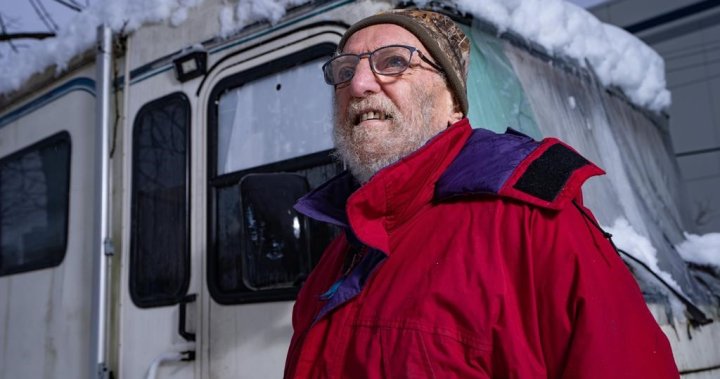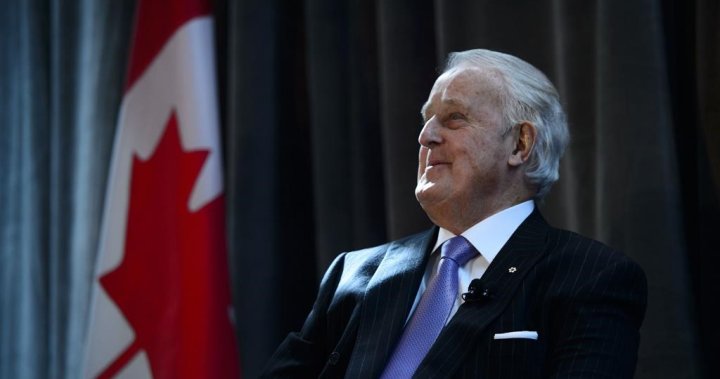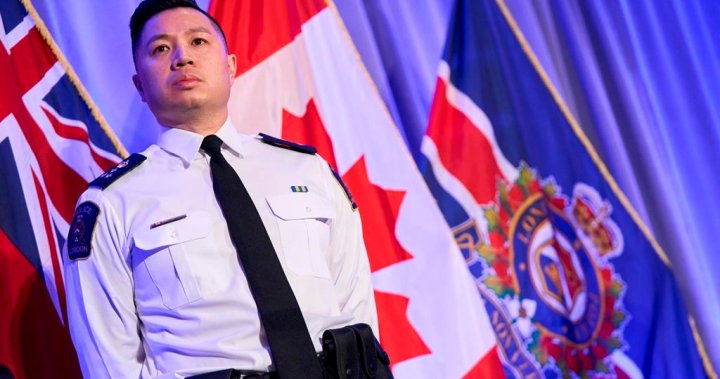Seventy-seven-year-old Keith Light is back at home in a recreational vehicle outside a Walmart in East Vancouver, having recently been discharged from hospital after an accident.
He’s glad to be out of the “crazy” emergency room at Vancouver General Hospital where he spent a night earlier this month. But what he really dreams of is a call from BC Housing.
Light spent New Year’s Eve trying to run the engine of his RV – covered with snow from a blast of winter weather – to stay warm while trying to imagine better times ahead.
“I just laid there and visualized BC Housing calling me and saying, ‘We have a place for you,’” said Light, a former construction worker.
The Canadian Press interviewed Light a year ago when his RV was parked outside the Canadian Tire store a couple of blocks away. But not much has changed since.
He’s been on BC Housing’s waiting list for subsidized housing for two years now. Every time he contacts the agency, staff ask him to check back in another six months, he said.
Light is among a large population of elderly people living in poverty or on the brink in British Columbia, where perennially high housing costs exacerbate countrywide cost-of-living woes.
Government statistics show people 65 or older in B.C. are twice as likely as younger adults to be classified as having low incomes in 2021. But it wasn’t always like this. Twenty years earlier, it was the other way around.
Low-income rates among B.C. seniors have almost doubled since 2001, and are almost seven times higher than in 1996, according to government statistics.
Light once had a home on Pender Island, a 40-minute ferry ride from Swartz Bay on Vancouver Island, but he sold it and relocated to Metro Vancouver.
After paying off debts he didn’t have much left so he bought the RV for $19,000 while living on a monthly pension of $1,900.
Adding to his financial woes are parking tickets, each costing $70. Light said he managed to pay some of them, and he’s now saving up to pay the rest.
Light said four months ago, trailers full of drug dealers moved into his area, and police busted them and towed their vehicles away. The city later put up signs banning parking between 10 p.m. and 6 a.m.
Light said he chose the spot because it had free public Wi-Fi from the Walmart and he was upset about the new parking rules.
“With all the people in tents and camps and no affordable housing around, the city should totally be accepting of those who have taken the initiative to look after their housing needs by getting a camper or RV,” he said.
Get the latest National news.
Sent to your email, every day.
“We take some pressure off the city, and yet they don’t stop their bylaw officers giving us tickets.”
Advocates for B.C. seniors say rising costs of living coupled with stagnant government retirement incomes are pushing more people into poverty and homelessness.
The monthly old age pension for people over 75 is up to $784.67, while the guaranteed income supplement for a single person is up to $1,065.47, for a total of $22,201.68 a year.
A 66-page report, titled Aging in Uncertainty: The Growing Housing Crisis for BC Seniors was published in late November by United Way British Columbia.
It cited Statistics Canada data showing that more than one in six B.C. seniors in 2021 had after-tax low incomes, defined as 50 per cent or less than the median adjusted after‑tax income of private households.
That was a “dramatic reversal” from three decades ago when seniors had the lowest low-income rates of any age group, United Way said.
The report says that in 2001, only 8.6 per cent of people aged 65 or over in B.C. were in the low-income category, compared with 16 per cent of younger adults. But by 2021, the situation had reversed — 15.2 per cent of seniors were in the low-income group, compared with 8.1 per cent of younger adults.
In 1996, only 2.2 per cent of seniors were in the low-income group.
The United Way report also said one in four seniors in B.C. had an after-tax income below $21,800 in 2020.
Carole Fawcett, a 75-year-old retired counsellor and freelance writer from Vernon, B.C., is among those on the low-income threshold.
She has a $1,800 monthly income from old-age security and the Canada Pension Plan.
She also has lymphocytic leukemia, and chronic obstructive pulmonary disease (COPD).
Fawcett said it was “bizarre” that she receives a lower income than someone working 40 hours a week on minimum wage.
She said she would still be working if her energy allowed, but her illness leaves her fatigued. She needs extra oxygen while she sleeps and relies on an oxygen tank when she walks her poodle-mix, Finnegan.
Her low income rules out things like restaurant dining and the freedom to buy what she wants at the grocery store.
“I do have friends and we go out for coffee or a muffin somewhere, depending on whether we pick places that are not too exorbitant,” she said. “I just don’t do a whole lot because I do have a limited pension.”
She doesn’t even bake as much as she used to because of the rising cost of ingredients and sometimes she has to dip into savings which she says are “getting smaller by the minute.”
“It’s absolutely disrespectful how seniors are treated by the government in that we don’t really have enough to live with any dignity or respect,” said Fawcett.
Laura Kadowaki, program and operations coordinator with United Way BC, said the group’s study was inspired by dozens of front-line service providers who described seniors in dire situations.
“One of the troubling things about the situation is that in the past, we actually saw that the income benefits often did a pretty good job of keeping seniors out of the low-income situation, keeping them housed, and meeting their needs,” said Kadowaki.
But in recent years, there has been a “very significant shift,” with income benefits failing to keep pace with the needs of older people.
Seniors interviewed for the report described living unsheltered or in unsafe housing situations: for example, staying with abusive family members, living in cars or storage lockers, camping in the woods and living without heat or electricity.
Kadowaki said one front-line agency worker told her about half of her clients are so distressed they say they aren’t sure if they want to live.
“That was something that really impacted me and it’s something that you never want to hear … (it) illustrates the impact that this crisis has on older adults across B.C.,” said Kadowaki.
Vancouver resident Sharon Elliott, 75, worked as a server until last October, when she had spinal surgery that prevented her from going back.
She gets a pension of about $1,770 per month, but after expenses for physiotherapy, rent and medicine “there was nothing left for food.”
She said the pension isn’t an income to “live on,” but to “die on.”
Elliott started an advocacy group for seniors called the Tin Cup Movement and held a rally outside Vancouver City Hall in September, calling for seniors to receive a “livable income” that reflects the cost of living.
The group’s name came from an encounter with another senior Elliott said she saw collecting cans out of the garbage.
“I said, ‘Excuse me, are you a senior living on a guaranteed income supplement?’ She said, yes and I sat down with her and spoke with her,” said Elliott.
Elliott said they clicked, both had worked for employers for more than 25 years but received no pension.
“It could have been me,” said Elliott.
Back outside Walmart, Light said he was thinking of borrowing some money from his sister to buy a camper, downsizing from his RV.
The smaller vehicle would make it easier to get around and avoid parking tickets, he hoped.
He said he was planning to go back to work, and planned to print out business cards advertising his services as a handyman and repairman to drop in mailboxes.
Light said he considered himself lucky since he still had a roof over his head, and he sympathized with the “hundreds and hundreds” of people who had been waiting for proper housing longer than him.
“You’ve just got to have faith and hold on and … just keep going,” he said.




